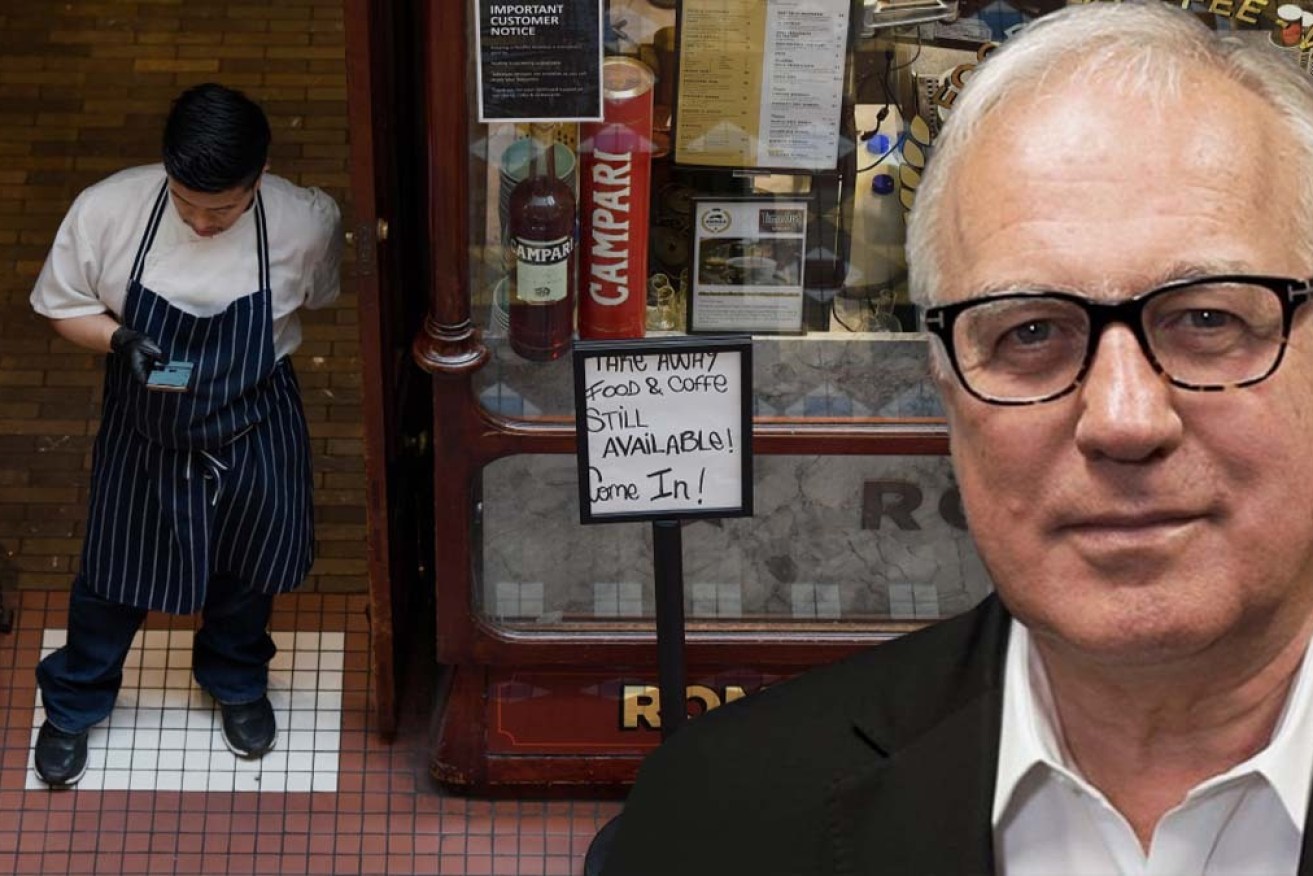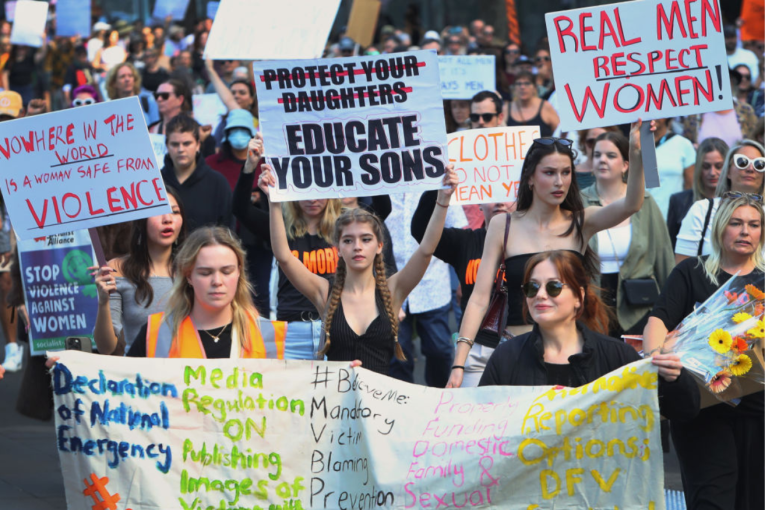Alan Kohler: Omicron is a natural disaster. We should treat it as one


Businesses need urgent financial support as staff isolate and customers steer clear, writes Alan Kohler. Photo: TND/AAP
Economically, the COVID-19 pandemic has changed from being a government-mandated recession to a natural disaster, and should be treated as that.
Government-imposed lockdowns in 2020 and 2021 produced three quarterly GDP contractions out of six over 18 months, including the minus 7 per cent all-time record in the June quarter of 2020.
Unemployment and hardship would have been horrific. But because they were the direct cause of the freeze in economic activity, federal and state governments rightly felt obliged to fully compensate the businesses and individuals affected.
In fact, in the case of the Morrison government’s JobKeeper program, they went overboard, allowing it to become an unchecked, secret windfall for businesses that didn’t need it as well as those that did.
But such was the sense of guilt and responsibility among politicians who were ordering entire populations to stay at home, leaving thousands of businesses bereft, not only did normal accountability go out the window but, more significantly, the entire notion of fiscal austerity was defenestrated, and it was a good thing too.
That was Alpha and Delta. Now there’s more infectious Omicron, but no lockdowns.
In their place is a fierce determination among politicians and health officials to not have lockdowns.
That will be a last resort, we are assured, but looking at the state of the health system it’s hard to imagine what else needs to happen to bring on that last resort.

Treasurer Josh Frydenberg should roll out another support package to help struggling businesses. Photo: AAP
Hospitals crumbling
If the stories we are hearing now from the nation’s hospitals, including the cancellation of elective surgery and IVF, are not exactly what the lockdowns of 2020 and 2021 were designed to prevent, I don’t know what would be.
Is the absence of lockdowns now really on the advice of health officials?
Maybe the real reason there are no government-behaviour mandates this time is that if political decisions were responsible for the economic losses there would have to be another gush of borrowed government money to compensate.
Anyway, it’s no lockdowns and no financial support, even though customers are choosing to stay at home and a lot of staff are forced to.
Businesses and families affected by Omicron are on their own.
I spoke this week to John Vakalis, who owns The Journal cafe in Flinders Lane in Melbourne.
His turnover is down 70 per cent from normal levels – not quite as bad as during the lockdowns of 2020 and 2021, when there was no business at all, but this time there’s no JobKeeper or anything else to offset the losses, so it’s much worse.
“Before Christmas things were picking up, but since then foot traffic has collapsed. I was hoping the tennis might help, but it’s not really,” Mr Vakalis said.
“I don’t know [how] much longer I can hang on.”
So far, Mr Vakalis’ business hasn’t been affected by staff either getting COVID or having to isolate for seven days because they were close contacts, but many other businesses have had to endure that, and the effect on them is the same as having no customers.
So there are two ways businesses are being affected by Omicron: Not enough customers, and not enough staff, and they are in as much strife as they were in the earlier lockdowns. The difference is that this time they are on their own.
‘Push through’, says PM
The word from Prime Minister Scott Morrison is that we have to “push through”, which is fine for him and me and everyone else on a salary and with enough sick leave, while the Treasurer Josh Frydenberg says “the government has done everything possible to keep Australians safe”, which is clearly not true.
So it’s clear that there will be no Omicron lockdowns as with the earlier variants and there will be no financial support.
But surely Omicron should be treated as a natural disaster, which is what it is.
Fires and floods are not the fault of governments, but those affected by them are looked after by the rest of us, with governments marshalling and distributing the resources.
It’s more complicated to help individuals and businesses scattered throughout Australia in a variety of industries rather than located in one place where there has been a bushfire or a flood.
But surely it’s not beyond the wit of well-paid bureaucrats and politicians to come up with a way of helping those affected by the disaster called Omicron.
Alan Kohler writes twice a week for The New Daily. He is also editor in chief of Eureka Report and finance presenter on ABC news








